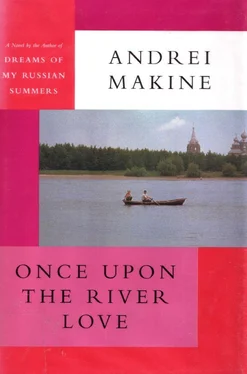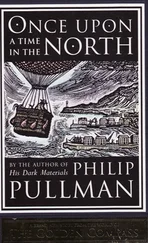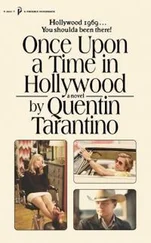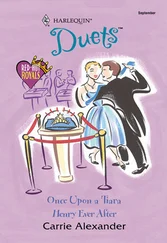It was at that moment that my head pierced the crusty surface of the snow! I closed my eyes; the light was blinding.
Infinite calm reigned over the sun-drenched plain: the serenity of nature at rest after the turmoil of the night. Now the blue distances of the taiga were clearly revealed: it seemed to be asleep in the sweet air. And above the glittering expanse, white columns of smoke arose from invisible chimneys.
The first men appeared, emerging from the snow, and stood up. With dazed looks they took in the glittering desert now spread out where the village had been. Laughing, we hugged one another, pointing at the smoke – it was really comic to picture somebody cooking a meal under six feet of snow! A dog bounded out of the tunnel and seemed to be equally bemused by the unaccustomed spectacle… I saw Klestov, the old believer, appearing. He turned toward the east, crossed himself slowly, then greeted everyone with an air of exaggerated dignity.
Little by little the village rediscovered its familiar sounds. The few men of Svetlaya, helped by all the rest of us, began to dig corridors linking the izbas with one another and opened up the path to the well.
We knew that this abundance of snow in our country of dry cold had been brought by winds that blew from the misty void of the ocean. We also knew that the storm had been the very first sign of spring. The sunlight of this mild spell would soon beat down the snow, would reduce it to heavy piles below our windows. And the cold weather would begin again, even more extreme, as if to take revenge on this brief interval of light abandon. But spring would come! We were sure of it now. A spring as brilliant and sudden as the light that had blinded us as we emerged from our tunnels.
And spring did come: one fine day the village broke its moorings. Our river began to move. Vast acres of ice began their stately procession. Their progress grew faster; the glittering layers of water dazzled us. The raw smell of the ice mingled with the wind from the steppes. And the earth slipped away under our feet. And it was our village, with its izbas, its worm-eaten fences, its sails of multicolored linen on the lines, it was Svetlaya that was embarking on a joyful cruise.
The eternity of winter was coming to an end.
The voyage did not last long. A few weeks later the river returned to its bed and the village landed on the shores of a fleeting Siberian summer. And during this brief interlude the sun spilled out the warm scent of cedar resin. We talked of nothing now but the taiga.
It was in the course of one of our expeditions into the heart of the taiga that Utkin discovered the Kharg root…
With his lame leg, he always lagged behind us. From time to time he would call out to Samurai and me: "Hey, wait up!" Understandingly we would slacken our pace.
This time instead of his usual "Wait up!" he gave a long whistle of surprise. We turned back.
How could he have unearthed it, this root that only the expert eyes of the Yakut women could manage to detect in the soft layer of the humus? Maybe thanks to his leg. His left foot, which he dragged along like a rake, dug up extraordinary things, often without his being aware of it…
We looked closely at the Kharg root. Without admitting it to ourselves, we sensed that there was something feminine about its shape. It was, in fact, a kind of plump, dark-hued pear, with a skin like suede, slightly cracked, the underside was covered in purplish down. From top to bottom the root was divided by a groove that resembled the line of a vertebral column.
The Kharg was very pleasant to touch. Its velvety skin seemed to respond to contact with the fingers. This bulb with its sensual contours hinted at a strange life that animated its mysterious interior.
Intrigued by its secret, I made a scratch on its chubby surface with my thumbnail. A blood-red liquid poured into the scratch mark. We exchanged puzzled looks. "Let me see," demanded Samurai, taking the Kharg from my hands.
He produced his knife and cut into the bulb of the root of love, following the groove. Then, thrusting his thumbs into the down at the base of the fleshy oval, he pulled them apart smartly.
We heard a kind of brief creak – like the sound of a door frozen fast with ice when it finally yields under pressure.
We all bent forward to get a better view. Within a pinkish fleshy lap we saw a long, pale leaf. It was curled up with that moving delicacy often encountered in nature. And it inspired mixed feelings in us: to destroy, to smash this useless harmony, or… We really did not know what should be done with it. And thus for several moments we gazed at the leaf; it was reminiscent of the transparency and fragility of the wings of a butterfly emerging from its chrysalis.
Even Samurai seemed vaguely embarrassed, faced with this unexpected and disconcerting beauty.
Finally, with a brisk movement, he stuck the two halves of the Kharg together and thrust the root into a pocket of his knapsack.
"I'll ask Olga," he called out to us as he moved off. "She must have heard of it…"
WE lived in a strange universe, without women. The discovery of the bulb of love simply brought this reality out into the open.
Yes, there were a few shadowy figures who were often dear to us; we were fond of them. But for us they had no feminine aura. My aunt; Utkin's mother; old Olga… Some of the faces of the women teachers at the school located at Kazhdai. Their femininity had long since been eroded in the harsh business of daily resisting the cold, the solitude, the absence of any foreseeable change. No, they were not ugly. Utkin's mother, for example, had a fine pale face, with a kind of ethereal transparency in her features. But did she know this herself? It is only long afterward, seeing her again in my memory, that I have been able to perceive this: yes, she could have been attractive, desirable. But attractive to whom? Desirable where? Cold, darkness, the eternity known as "winter"… And the pendulum had gone to sleep, enmeshed in the ice-covered barbed wire.
It happened that, owing to the chance of some allocation decided a thousand leagues from our village, a young woman teacher found herself at our school. A rare commodity. A figure who became the focus of intense curiosity. But we detected such anguish on her face, such a desire to escape as quickly as possible, that we ourselves were made uneasy by it: was our life really so unbearable? Her anguish distorted her features. Her beauty, her fascinating strangeness, became blurred beneath this grimace of terror. We all felt that she was mentally counting the days – she looked at us as if we were already in the past. People who figured in an unhappy memory. Characters in a nightmare.
And the men, in thrall to those three elements – taiga, gold, and the shadow of the watchtowers – were doing their counting as well… in cubic meters of cedarwood or kilograms of gold-bearing sand. They, too, dreamed of a completely different existence, when all this counting was over; of a life ten thousand leagues distant from this country – beyond the Urals, at the other end of the empire. They would mention the Ukraine, the Caucasus, the Crimea. As their saws bit into the aromatic flesh of the cedar trees, they seemed to be shrieking: "Crrr-i-mea," out of yearning for it. And the dredging machines of the gold prospectors echoed them as they dug: "Crrr-i-mea."
And as for love… The only word we ever heard them use was "have." Not "have a night with," which might have evoked the occasion. Still less "have an affair"; that might even have suggested a process of seduction; but simply "have a woman." Lurking in a corner of the workers' canteen, behind our glasses of stewed fruit, we listened to them exchanging secrets and were always desperately disappointed by them. Their stories only told us of one thing: that one of them had "had" an unknown woman. No backdrops, no portraits, no erotic imagery. They did not even bother trying to characterize their exploits by using one of the obscene verbs that regularly reverberated in their throats, burned with vodka and the wind.
Читать дальше












